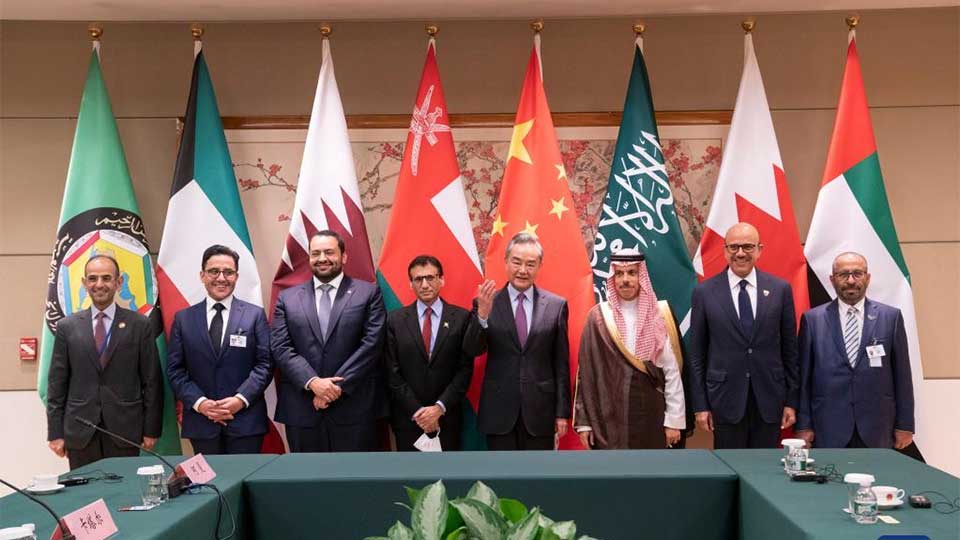China and the GCC talk energy, security and more cooperation

A few minutes every morning is all you need.
Stay up to date on the world's Headlines and Human Stories. It's fun, it's factual, it's fluff-free.
China has a longstanding history of cooperation with the Gulf Cooperation Council (GCC), which includes Bahrain, Kuwait, Oman, Qatar, Saudi Arabia and the UAE. In fact, China is the GCC’s largest trading partner. Since 2004, the two have been negotiating a free trade negotiation with some stops and starts over various disagreements, and the bloc is a major part of China’s Belt and Road Initiative.
On Monday, China’s Foreign Minister Wang Yi met with the foreign ministers of the GCC at the UN General Assembly in New York to talk about relations, food and energy. He thanked the bloc for its support on issues related to Taiwan, Xinjiang, Hong Kong and human rights – all areas of ongoing tensions between China and the West. For his part, Wang pledged China’s support in defending against interference in the GCC’s internal affairs and backing its efforts toward integration.
Looking to the future, the two discussed continuing their partnership to ensure food and energy security and improve supply chains. Wang mentioned cooperating in the areas of energy, infrastructure, finance, investment and technology – especially when it comes to cooperation in the Belt and Road Initiative.
Key comments:
“The GCC firmly adheres to the one-China policy and supports China in safeguarding national sovereignty and territorial integrity. Both the GCC and China uphold the principles of mutual respect and non-interference in internal affairs,” China’s Ministry of Foreign Affairs said in its official statement.
“The GCC anticipates a bright future for its ties with China and is willing to consolidate mutual trust, deepen pragmatic cooperation in all areas to ensure the security of food and energy and that the supply chain is stable, and face global challenges together,” the GCC was quoted by the Chinese foreign ministry as saying.
“There is a feeling in the region that the United States is actively on the way out, and that’s an opportunity for China,” said Gedaliah Afterman, head of the Asia Policy Program at the Abba Eban Institute of International Diplomacy at Reichman University in Israel.
“The Gulf States have been careful to balance their approach to ensure that growing ties with China do not antagonize their main security guarantor, the United States,” said Elham Fakhro, a visiting scholar at the Center for Gulf Studies at Exeter University.




Comments ()